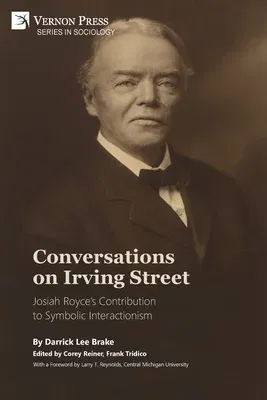What influence did Josiah Royce's academic work (1913-1917) have on the
development of classical Symbolic Interactionist thought? And which
philosophical influences shaped Royce's social and philosophical
thought?
This book provides a holistic approach to Royce's academic work and the
social philosophy that shaped Symbolic Interactionist theory. By
critically evaluating the works of Royce, this book reveals how his
ideas and social philosophy made significant contributions to both
Symbolic Interactionist thought and sociological theory. Situating his
contributions within a socio-historical time frame, Royce's social
philosophy is compared and contrasted to the major concepts of George
Herbert Mead (Mind, Self, and Society) and Herbert Blumer's core
synthesized components of classical symbolic interactionist thought
(Symbolic Interactionism: Perspective and Method). Thus, demonstrating
that Royce's later academic works closely resemble not only the basic
ideas of Mead but also have a strong correspondence with Blumer's
synthesis of the three basic premises and eight root images that outline
the theoretical core of Symbolic Interactionist thought.
For those looking to investigate or discover new aspects of symbolic
interactionist theory from a classical viewpoint, this book offers a
unique insight into an American philosopher whose contribution to the
development of Symbolic Interactionism has been largely unnoticed.


